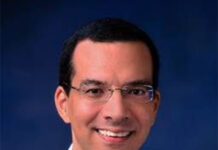
By Jerry Roker
for Bahamas Press
The creation of a professional public service has been the stated objective of every government of The Bahamas. But they hardly pursued this goal with any alacrity.
In fact, if anything, the public service has been converted into a political football, with each incoming administration subtly kicking out persons whom they perceived as being political appointees or untrustworthy. It is difficult to imagine how a professional public service can emerge in the context of such harrowing suspicions of others.
Apart from the lack of trust, another stumbling block to the creation of a professional public service has been the fact that incoming governments are under a lot of pressure from their supporters for jobs. As such, professional public servants are often sacrificed on the altar of political expediency.
Ideologically, the two dominant political parties, the PLP and the FNM would have difficulties in accepting the notion of a neutral public service. Both of these parties have roots in left wing politics. While they may profess that they would like to see a professional public service, in practice they wish to see a public service that is beholden to the ruling party.
The political parties talk the talk, but do not walk the walk. Sir Lynden Pindling, when he took office in 1967, did enunciate principles for the neutrality of the civil service, he made it clear that the public service must serve the government of the day.
A professional public service has nothing at all to do with competence. You can have the most professional public service which is woefully incompetent.
Professionalism within the public service is about political neutrality. A professional public service simply refers to the employees of government being non-partisan in their work. A professional public service is one in which public servants act impartially, regardless of which government is in power. A professional public service rests on having the right people with the right skills for the job, employment based on merit. These can only be achieved through a competitive and impartial interview and evaluation system.
A professional public service means that when one government changes, there is no need for any massive change in personnel in civil service positions when the new government comes in. A professional public service means that public servants should not be required to perform or attend partisan political events.
In order to have political neutrality, it means that public servants should not be members of the Executive of their political parties nor should they contest elections on the slates of political parties.
A professional public service means that public service buildings should not be painted in colours suggestive of partisan support or wear uniforms the colour of which approximate or maybe perceived as being identical or similar to that of the colours of a political party.
The government does not need new staffing to make the public service neutral. It simply has to manage the system in a non-partisan way to ensure a professional public service.
But that is hard to do when friends and family are demanding jobs and when they gossiping negatively about the persons they wish to see replaced.







